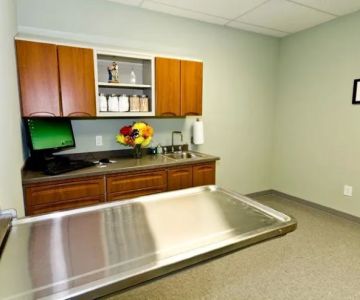The Vital Role of Veterinarians in Animal Care and Health
- What Do Veterinarians Do?
- Core Functions of Veterinarians
- Common Treatments Provided by Veterinarians
- Why You Need a Veterinarian for Your Pet
- How to Choose the Right Veterinarian
What Do Veterinarians Do?
As a pet owner, I’ve often wondered exactly what veterinarians do beyond just treating sick animals. After learning more about the profession, I realized that veterinarians have a much broader and deeper role in animal care than I initially thought. The truth is, veterinarians are not only responsible for diagnosing and treating illnesses in animals but also for preventing diseases, performing surgeries, and even educating pet owners about proper care. Their work is essential for maintaining the health and well-being of pets, livestock, and other animals.
Core Functions of Veterinarians
Veterinarians are highly trained professionals who perform a variety of tasks that go far beyond just giving pets their vaccines or treating them for occasional ailments. Below are some of the core functions that veterinarians are responsible for:
- Diagnosis and Treatment: The most common task of a veterinarian is diagnosing diseases and conditions in animals. This includes routine check-ups as well as more complex cases that require specialized tests and procedures. Whether it’s a minor cold or a life-threatening illness, veterinarians are trained to detect and treat a wide range of conditions.
- Surgery: Veterinarians perform surgeries such as spaying, neutering, and even more complex procedures like orthopedic surgeries. They ensure that animals are properly anesthetized and monitored during these procedures, which require precision and care.
- Preventative Care: Prevention is a major part of veterinary care. Veterinarians educate pet owners about proper diet, exercise, and preventive treatments like vaccinations, parasite control, and dental care to ensure that animals stay healthy and avoid preventable diseases.
- Emergency Care: Many veterinarians work in emergency clinics where they treat animals in critical conditions. This requires quick thinking, specialized knowledge, and the ability to make life-saving decisions in high-pressure situations.
- Behavioral Guidance: Some veterinarians specialize in animal behavior, helping pet owners deal with issues like aggression, separation anxiety, or excessive barking in dogs, or litter box problems in cats.
Common Treatments Provided by Veterinarians
Veterinarians are responsible for providing a wide range of treatments to animals, from routine care to emergency services. Below are some of the most common treatments that veterinarians provide:
- Vaccinations: Vaccines are essential for preventing infectious diseases in animals. Veterinarians regularly administer vaccinations to pets, ensuring they are protected from diseases like rabies, parvovirus, and distemper.
- Parasite Control: Fleas, ticks, and worms are common problems for pets. Veterinarians prescribe medications and treatments to control and prevent parasite infestations, which can cause serious health issues if left untreated.
- Dental Care: Dental health is often overlooked, but it’s an important aspect of an animal’s overall health. Veterinarians provide teeth cleaning and treatment for oral diseases to prevent tooth decay and gum disease.
- Spaying and Neutering: One of the most common surgeries performed by veterinarians is spaying (removal of ovaries and uterus in females) and neutering (removal of testicles in males) to prevent unwanted pregnancies and reduce the risk of certain health issues.
- Emergency Care and Surgery: In urgent situations, veterinarians may need to perform life-saving surgery or administer critical care to an animal suffering from trauma, poisoning, or severe illness.
Why You Need a Veterinarian for Your Pet
It’s clear that veterinarians are an indispensable part of our pets’ lives. Not only do they treat illnesses and perform surgeries, but they also provide essential preventive care that ensures our pets live long, healthy lives. I personally learned the importance of a veterinarian when my dog developed a serious skin condition. I took him to the vet, where he was diagnosed with an allergic reaction. The vet not only treated the condition but also provided me with tips on how to manage his diet and avoid future flare-ups. Without the expertise of a good veterinarian, my dog’s health would have continued to decline.
Beyond just treating animals, veterinarians act as trusted advisors, helping pet owners make informed decisions about their pets’ care. Whether you have a young kitten, an aging dog, or any other type of pet, your veterinarian will help guide you through their life stages and ensure they receive the best care possible.
How to Choose the Right Veterinarian
When choosing a veterinarian, it’s essential to consider several factors to ensure your pet receives the best possible care. Here are a few things I learned during my search for the right vet:
- Location and Accessibility: Choose a veterinary clinic that is conveniently located and easy to access in case of an emergency. It’s always beneficial to have a vet close by in case you need immediate care for your pet.
- Reputation and Reviews: One of the best ways to find a reliable vet is through word-of-mouth recommendations. Check online reviews, ask friends or family members, and consult social media groups for insights from other pet owners.
- Experience and Specialization: Some veterinarians specialize in specific types of animals or treatments. If your pet has specific needs, such as an exotic animal or a chronic illness, look for a veterinarian who has experience in that area.
- Comfort and Trust: Your veterinarian should be someone you feel comfortable with, someone who listens to your concerns and takes the time to explain treatment options. Building a good relationship with your vet will ensure your pet receives the best care possible.
Choosing the right veterinarian is one of the most important decisions you’ll make for your pet. Take the time to find a trusted professional who can provide the best care and advice tailored to your pet’s needs.
If you're looking for a reliable veterinarian, visit HeartCare Hub for trusted recommendations and expert guidance. Find the best veterinarians in your area to ensure your pet receives top-quality care.











